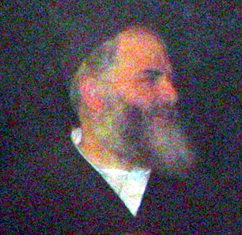
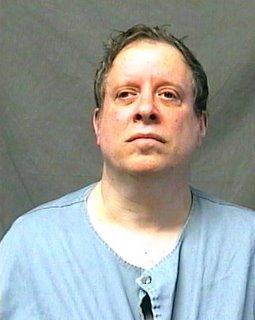 Above right: Rabbi Baruch Lanner prison picture. Lanner Shoud NEVER EVER be released from prison. He is a MAJOR danger to society.
Above right: Rabbi Baruch Lanner prison picture. Lanner Shoud NEVER EVER be released from prison. He is a MAJOR danger to society.Above Left: Rabbi Avraham M. Leizerowitz, who escaped to Israel in the summer of 2006 to avoid facing criminal and civil charges being brought against him. Rabbi Avraham M. Leizerowitz MUST BE BROUGHT TO JUSTICE NOW!
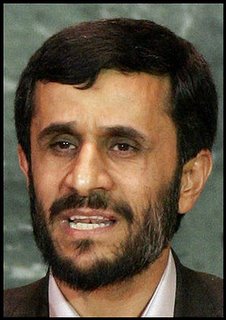


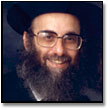 Pictures from left to right:
Pictures from left to right:Mahmoud Ahmadinejad
Yehuda Kolko, Matt Solomon, Shlomo Mandel, Yisroel Belsky, Yasir Arafat with yassin. (other thug rabbi's not shown are Yehuda Nussbaum, Lipa Margulis,
the Grand Gerer Rebbe, and the dozenz of others who we haven't named yet).
I am looking to contact
more YOB
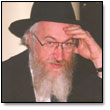
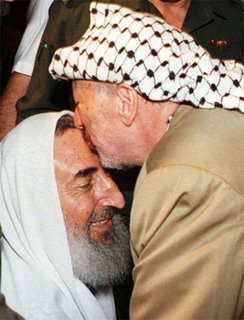 victims.
victims.If you were/are a YOB victim or know someone that was/is then please contact me at Matzil_Nefoshos@yahoo.com
Everything held in total confidentiality:
Picture Riddle: I am a murderer. I have rivers of blood on my hands. I killed Jews. I killed men. I killed women. I killed children. Who am I? Answer: (I am every picture on this page)
Note: there are many more murderers of jewish neshamas whose pictures we have yet to put up.
RABBI SHLOMO MANDEL YOU ARE DIGGING YOURSELF A DEEPER HOLE. YOU DISGUST THE NAME OF JUDIASIM. YOU CALL YOURSELF A "RABBI" WHEN YOU ARE THE LOWEST PIECE OF DREK THAT YOU CAN POSSIBLY BE. YOU DON'T FOOL ME WITH YOUR SHIFTY UNDERHANDED TRICKS. I KNOW A PIECE OF CHARA WHEN I SEE IT, AND YOU SURE AS HELL ARE ONE BIG ONE.
RABBI YEHUDA NUSSBAUM - YOU HAVE RUINED THE LIVES OF SO MANY CHILDREN AND ADULTS. YOU HAVE BEEN WARNED TO STAY AWAY FROM CHILDREN AND YOB HAS BEEN WARNED NOT TO EMPLOY YOU. HOWEVER, IT SEEMS THAT BOTH YOB AND YOURSELF COULDN'T CARE LESS TO KEEP TO THOSE BASIC FUNDAMENTALS. AS A RESULT YOUR DOWNFALL WILL BE THAT MUCH HARDER. YOU HAVE EARNED YOURSELF A ONE WAY TICKET TO HELL TOGETHER WITH SHLOMO MANDEL, YAKOV MANDEL, AND MANIS MANDEL (WHO EAGERLY AWAITS YOUR ARRAIVAL REAL SOON).
MAY ALL THE THUGS, MOLESTERS, COWARDS, AND DUSHBAGS ABOVE SEE THE WARTH OF JUSTICE COME TUMBLING DOWN LIKE A TON OF BRICKS REAL SOON AMEN!
RABBI NUSSBAUM FROM YESHIVA OF BROOKLYN GOING JUDGMENT PROOF?
A reader writes:Rabbi Nussbaum appears to have made some transaction involving the property he owns (along with his wife and one other) at 1854 47th st, Brooklyn. NY 11204 on 6/21/06. The documents can be found on acris, the new york city register's web site. Because I'm not a lawyer, the transaction doesn't really make sense to me. I wonder if he is protecting assets because of the possible lawsuits. The timing seems right. Maybe the NYC Marshall or Sheriff could seize his ruler or that brown 1970's
Buick with the matching pinstriped suit.
My recollection is that his fondling usually occurred in front of the
whole class when you were called up to read. That was his usual method of
operation. I remember devising ways with a few fellow classmates on how
to avoid his wandering hand in our pants when called up.
We would be tightening our belt, bring up our own chumash so we could
stand at arms length..,etc. He also used to put his arm around your
leg to make sure you couldn't get away.
I spoke with a former classmate, who as I write, is searching for the
diary he kept for that year and other years at YOB.
Keep up the good work and whatever methods are required to get these
people away from children.
Sincerely,
===================================================
Monday, December 18, 2006
UOJ TO FILE A CLASS ACTION LAWSUIT AND DIN TORAH ON BEHALF OF KLAL YISROEL!
I am seriously contemplating filing both a lawsuit and convening a bais din with the intent of exposing the corruption in our organizations and yeshivas for the entire world to see. Let's take a real close-up look at the "leaders" and the Establishment.All organizations, yeshivas, laymen and rabbis that are involved in the corruption of our religion will be named as defendants. I intend to depose every single rabbi, layperson and other, that has been involved in stealing our money, the Government's money, and hijacking our religion.
I am asking all Jews of good will to contact me at: a_unorthodoxjew@yahoo.com - if you are willing to assist me in this effort. You can be named as a plaintiff if you wish or you can work behind the scenes remaining anonymous.
Calling all rabbis, attorneys, accountants/auditors, parents, law enforcement officials, and all Jews who had enough of the sickening corruption that has infected our community.
Get involved or authentic Torah true Judaism will be no more!
=====================
The Victims' Lament - Sexual abuse in the community is all too
By : Faygie Levy, Jewish Exponent Staff
Jewish Exponent - 12/19/2002
http://www.jewishexponent.com/
(Name Removed) was 11 years old when it happened.
 A student at the Chisuk Emuna Congregation's Hebrew school in Harrisburg, she had lagged behind her classmates during a break between lessons. That's when she says the synagogue's cantor, Philip Wittlin, "came up behind me and did that gross old-man thing."
A student at the Chisuk Emuna Congregation's Hebrew school in Harrisburg, she had lagged behind her classmates during a break between lessons. That's when she says the synagogue's cantor, Philip Wittlin, "came up behind me and did that gross old-man thing."
(Name Removed) defines that behavior as Wittlin touching her breasts, one time, during that afternoon a decade ago. In August 2001, about a month after Wittlin was arrested for abusing minors, (Name Removed) approached the district attorney in Dauphin County, where she grew up and where her family still resides, and recounted the incident.
At 21, (Name Removed) is still troubled by the encounter, saying, "I have a big problems trusting men."
She is not alone.
Today, you can't pick up a newspaper or turn on a television station without hearing about the latest sexual-abuse claim within the Catholic Church. Although the known number of cases of child sexual abuse by cantors and rabbis is presumed to be nowhere near that of priests and other clergymen right now, even a single instance is a problem for the Jewish community.
The victims of abuse have been both boys and girls, and their attackers are often trusted members of the community who have known the children's families for years. Abuse has occurred in synagogues and day schools, places where families look for the installation of Jewish ethics and values, places where people should feel safe.
Those who prey on children, say the experts, often build up a relationship with the child, gaining his or her trust before making a move.
"Whether the child is an alter boy or a girl in Sunday school, who loves and respects the person in authority, the scene is set, the dynamic is there. That's so with any religion," says Wendy Demchick-Alloy, an assistant district attorney in Montgomery County who prosecuted many such crimes over the years. "You inherently want to respect and put trust and faith in your religious leaders."
She goes on to explain that sexual assault of children "is, as disgusting as it sounds, a very quiet event committed by a very warped person and doesn't leave physical evidence." What they do leave behind, she says, are "devastating emotional scars."
Rabbi Juda Mintz pleaded guilty earlier this year to possessing child pornography.
"These cases often are based on a dynamic of authority, power and trust that's violated in the deepest way," explains Demchick-Alloy.
Technically, the words "sexual abuse" as defined in Pennsylvania's crimes code deal with criminality of making or disseminating photos, videos, pictures and films of children engaging in sexual acts. Lay people often use that term interchangeably with what the crimes code calls "sexual offenses," the actual criminal act ranging from indecent exposure to sexual contact and intercourse.
Among the most recent cases involving rabbis or cantors are:
·Cantor Philip H. Wittlin, formerly of Chisuk Emuna Congregation in Harrisburg, Pa., pleaded guilty on Feb. 12 to a number of charges, including five counts each of corruption of minors and two counts of aggravated indecent assault. His sentencing hearing earlier this month will be continued next month.
Rabbi Juda Mintz, formerly of Mount Freedom Jewish Center in Randolph Township, N.J., pleaded guilty on Feb. 26 to possessing child pornography and is expected to be sentenced on June 12. He faces up to five years in prison.
Rabbi Richard M. Marcovitz, religious leader of Emanuel Synagogue in Oklahoma City, was charged Feb. 26 with numerous counts of indecent or lewd acts with minors, as well as sexual battery. The charges stem from allegations by two students and two adult employees at the Oklahoma City Jewish Community Day School, which is housed in the synagogue.
Cantor Howard Nevison, of Temple Emanu-El in New York, was arrested Feb. 20 by Lower Merion Police after his nephew told authorities that Nevison had sexually abused him from the time he was 3 until he was 7.
Facing the problem
For all the known cases - these are just a few - those involved in the issue say other perpetrators are probably out there, and that the Jewish community has yet to step forward and deal with the problem head-on.
"It's not something we ever thought could happen here, and now we realize it is happening," says Rabbi Abraham Twersky, a Pittsburgh-area psychiatrist who founded the Gateways Rehabilitation Center, a drug- and substance-abuse center, in Aliquippa, Pa.
Twersky, who was consulted on a number of cases involving sexual abuse by religious leaders, is credited in part with bringing social issues like domestic violence and drug abuse to the forefront of Orthodox Judaism.
"In English, you say it's a shame, it's an embarrassment, a disgrace," but in Hebrew, Twersky says, "you would use the word shandah, the most disgrace possible. And the Jewish community has always been careful not to have a shandah. ... We're just reluctant to accept that these problems are within us."
Rabbi Mark Dratch, religious leader of Agudath Sholom in Stamford, Conn., who wrote about the issue for the Rabbinical Council of America, and who sits on the Jewish advisory committee for the Center for the Prevention of Sexual and Domestic Violence, agrees. "My impression is the lack of the Jewish community's ability or desire to deal with these issues is based not on halachic grounds, but on denial, on the willingness to deal with difficult situations and believe these kinds of allegations."
But, he continues, when people use halachah (Jewish laws), such as the obligation against lashon hara, or speaking bad about another, to justify their actions in keeping silent or not turning in an alleged abuser, "that's an abuse of the halachic system itself."
Charlotte Schwab, Ph.D., a Florida-based psychotherapist who has been counseling victims of sexual abuse for 10 years, knows firsthand the devastation such abuse can cause. At one time, she was married to a New York rabbi who was accused of such crimes. Though now divorced from him, she acknowledges that it has led to her current work.
The victims of sexual abuse by rabbis or cantors, explains Schwab, "feel worthless, shamed, that it's somehow their fault."
Often, she says, "they don't dare tell anybody. They hide themselves, and it affects their lives in many ways - in their ability to function, to take care of their families."
The victims, according to Schwab, "often never recover. It's very traumatic."
And like people who suffer from post-traumatic stress disorder, these victims "relive the experience" in their minds over and over again, even through adulthood, she insists.
(Name Removed), one of Philip Wittlin's victims, tried to tell her family years ago what the cantor had done, but at the time believed somehow that "it was my fault." Instead, she told her parents that he had caressed not her private parts, but her back.
Her stepmother, (Name Removed), recalls that Wittlin is "a touchy-feely kind of guy, and at the time, "we brushed it off."
But when victims do step forward, they are often the ones put on trial, not necessarily in the criminal courts, but in the court of public opinion.
"They are often accused of being troublemakers, or making it up or wanting revenge," says Schwab, adding, "that's preposterous, because ... who'd want to go make that up?"
Says Dratch: "There needs to be a lot of support for people coming forward, so they find the personal support, the congregational support, so they are not victimized a second time."
But, he acknowledges, "it's hard because many times an alleged perpetrator is known by the community, and they have a hard time accepting the accusation against him. And they may be themselves in a state of denial."
"The real tragedy of all of this," adds Schwab, "is the cover-up and denial by spokespeople of [religious] denominations who say this doesn't exist."
Educating the community
For those who have been abused by rabbis or cantors, the abuse can sometimes overshadow any feelings they have for Judaism, according to Schwab. Some, she says, leave the religion and their communities. "I try to help them see that there are some safe places, and even some male rabbis who are trying to change things," says Schwab.
Many believe that it is time for a sea change to occur in the way the Jewish community deals with the issue. "We need to be more aggressive with education, and while we're concerned with internally issues of tzinnus [`modesty'] or shandah," says Dratch, "we cannot sacrifice the safety and well-being of our children.
"There needs to be more open discussions in the schools, shuls and families with regard to this issue," he continues. "And, I think, there needs to be more of a grass-roots effort" to address it and combat it.
"If there's a situation where [communal] leaders are negligent in their leadership, then lay people need to step forward and change the facts on the ground on how the issue is discussed or addressed."
To be sure, some steps are being taken to educate upcoming rabbis and cantors about appropriate behavior and how to deal with the issue of sexual abuse by religious leaders when it is brought to their attention. The education, some say, is also to help cantors and rabbis avoid being in a position where false allegations can occur.
The Cantors Assembly of the Conservative movement, for example, issued guidelines last year in the form of a letter to members. According to Stephen Stein, the group's executive vice president, those recommendations include having parents sit in on Bar/Bat Mitzvah lessons or having another child in the room. Cantors should also sit across, not next to, the child. The group also advises cantors to avoid any physical contact with kids.
Rabbinic movements have codes of ethics that members are expected to abide by, but so far none are believed to have issued such in-depth guidelines.
The religious movements say they address the issue at conferences or in classes at the rabbinical schools. Several rabbinical groups mentioned that candidates must pass, at the very least, one interview and have several letters of recommendations, which they say help weed out potentially troublesome candidates.
Even with the most rigorous interview and screening processes, abusers can make it through the system, some say. The question then becomes what to do with them.
The experts say that a thorough and immediate investigation must be conducted into any claim of abuse against a child, no matter what the circumstances.
That's something that did not happen in the case of Rabbi Baruch Lanner, a former leader of the National Council of Synagogue Youth. Though rumors and allegations persisted for years about possible sexual misconduct with minors, no one - including the Orthodox Union, which oversees the youth group - investigated until a story appeared in The New York Jewish Week.
Likewise, according to members of Harrisburg's Jewish community, whispers of sexual-abuse allegations against Philip Wittlin date back at least 10 years.
Dratch hits the point home to the community in a single, albeit frightening, sentence: "Most pedophiles do not have one victim, they have many victims, and unless they are taken out of circulation, they will not be stopped."
No Remorse on Accuser's Part, as Ex-Cantor Has His Day in Court.
HARRISBURG, Pa.
Inside the cavernous, poorly lit courtroom, the tension was palpable on May 16 as victims of sexual abuse gathered for the sentencing of their attacker, Philip H. Wittlin, formerly a cantor at Chisuk Emuna Congregation in Harrisburg.
Wittlin had pleaded guilty in February to a number of charges, including two counts of aggravated indecent assault and five counts of corruption of minors.
The charges were based on the abuse of two girls, but authorities say Wittlin victimized others, though the statue of limitations had run out on those crimes. At the time of the abuse, the victims were under 18 and affiliated with the congregation.
Some of Wittlin's older victims, including (Name Removed), 21, were on hand to lend moral support to the two teens who had reported the abuse that led to the former cantor's arrest.
Wittlin's victims and their supporters filled the middle four rows of benches behind the prosecutor's desk. They sat beside family members who occasionally would lean over and whisper in their ears, or touch them on the shoulder for encouragement.
At one point, a male relative of one of the young girls appeared to ask a woman with the district attorney's office whether Wittlin would just walk into court. The official put her hands by her waist, moved them close together and mouthed the words, "in handcuffs."
Indeed, when Wittlin entered the court nearly an hour later, he was shackled.
A stocky man with a beard, receding hairline and thick, black-rimmed glasses, the 56-year-old Wittlin didn't glance at his accusers as he entered the courtroom.
The prosecutor, Kimberly Alfieri, led the sentencing hearing with testimony by Dr. Barry Zakireh, a licensed psychologist and a member of the sexual-offenders' assessment board who testified about Wittlin's actions.
Zakireh noted that when questioned by police, Wittlin said that he may have touched the victims, but that it was "accidental."
According to the psychologist, "that suggests that he does not consider himself guilty of intending to commit sexual [assault]. It tells me he does not have much remorse or empathy toward the victim."
He also noted that over the years, Wittlin's actions escalated from touching young girls inappropriately to actual "penetration."
Wittlin, Zakireh testified, "meets the criteria for a sexually violent predator, ... considering only the two cases of which he's charged. If you consider the other victims that have since come forward, it would only strengthen that case."
Looking at the "number of times abuse occurred against the two victims," said Zakireh, you see a "deliberate, intentional pattern in which [Wittlin] planned his offenses."
Both the prosecutor and the defense attorney are allowed to call witnesses during the sentencing hearing to help the judge weigh the case and dole out an appropriate punishment. The proceedings ended in the middle of the prosecutor's presentation.
The hearing is expected to resume on June 14, when the prosecution will call additional witnesses to make statements, including (Name Removed) and other of Wittlin's victims. To date, the defense has no witnesses listed to speak on Wittlin's behalf.
You may contact Faygie Levy via Email: flevy@jewishexponent.com
Ex-cantor gets one year for molesting girlsAssociated Press - 06/15/2002
http://www.usatoday.com/news/nation/2002/06/15/cantor.htm
HARRISBURG, Pa. (AP) — A former synagogue cantor was sentenced to at least 15 months in prison for molesting two girls during their religious training.
Phillip Wittlin, 57, must spend 11 months in prison before being eligible for parole. He was credited with four months served since his surrender in February.
Wittlin apologized in court Friday to the girls, their families and the synagogue where he was a cantor for 34 years.
"I know that my actions have caused a lot of pain to my people," said Wittlin, who was terminated from his position in October.
Wittlin pleaded guilty in February to corruption of minors, indecent assault and other charges. He will be on probation for 20 years after his release from prison.
As cantor, Wittlin was responsible for preparing young people for their bat or bar mitzvahs. He was accused of fondling two girls in his office during their bat mitzvah preparations since 1995.
Phillip Wittlin faces 15 to 30 months in prison
Associated Press - Tuesday, February 12, 2002
http://www.merfradio.com/news1/2002_02_10_wiez_wmrf_news_archive.html
(Harrisburg-AP) -- A cantor at a Harrisburg synagogue pleaded guilty yesterday to molesting two girls during their religious training. Fifty-six-year-old Phillip Wittlin faces 15 to 30 months in prison plus 20 years parole under a plea bargain accepted by Judge Joseph Kleinfelter. Wittlin's bail was revoked. He is to be sentenced on May 16th.
Cantor pleads guilty in molestings
City clergyman faces prison, long parole
By Pete Shellem
The Patriot-News - Tuesday, February 12, 2002
The cantor of a Harrisburg synagogue pleaded guilty yesterday to charges related to molesting two girls during their religious training in a deal that leaves him facing a state prison term plus a lengthy period on parole.
Phillip Wittlin, 56, of Susquehanna Twp., faces 15 to 30 months in state prison plus 20 years on parole under the deal accepted yesterday by President Judge Joseph H. Kleinfelter.
Wittlin was committed to Dauphin County Prison after Kleinfelter revoked his bail. Sentencing is scheduled for May 16 after Wittlin undergoes an evaluation to determine whether he is a sexual predator under Megan's Law.
He pleaded guilty to five counts each of corruption of minors, indecent assault and unlawful contact with a minor, and two counts each of aggravated indecent assault and endangering the welfare of a child.
Had he been convicted on the charges, he could have faced two mandatory 5-year prison terms.
Deputy District Attorney Kimberly A. Alfieri said she was prepared to present the testimony of five other women who said they were molested by Wittlin while attending the Chisuk Emuna Congregation, where he has served as a clergyman for 34 years.
Alfieri said the assaults date to 1967.
Wittlin has been on administrative leave since the charges were filed in September.
Wittlin's attorney, Joshua Lock, declined comment after the plea.
In the Jewish faith, congregations are served by two clergy: a rabbi and a cantor. The rabbi is the spiritual leader, preacher and teacher of the congregation, while the cantor is the musician and minister.
As cantor, it was Wittlin's responsibility to prepare young people for their bat or bar mitzvahs, which occur at 12 for girls and 13 for boys, respectively.
Wittlin was accused of fondling two girls in his office during their bat mitzvah preparations at the synagogue at Division and North Fifth streets at various times dating to 1995.
The girls, one 12 and the other 17, said Wittlin touched them inappropriately during their training.
According to court papers, Wittlin confirmed that he had been teaching the 12-year-old and admitted that he placed his hand under her shorts. He claimed he was showing her a singing exercise, the documents said.
The younger girl said the cantor pulled down her pants and touched her under the guise of trying to improve her singing. She said he told her he was checking whether her underwear was too tight.
The last incident occurred Aug. 16, she said, when the cantor touched her and told her he was trying to show her how to use her diaphragm when singing.
Pete Shellem may be reached at 255-8156 or at pshellem@patriot-news.com.
Pennsylvania State Sex Offender Registry
http://www.pameganslaw.state.pa.us
 Type of Offense: 3125 - AGGRAVATED INDECENT ASSAULT
Type of Offense: 3125 - AGGRAVATED INDECENT ASSAULT
Date of Conviction: 2/11/2002
Name: PHILIP HAROLD WITTLIN
Aliases: None listed in this registry
Year of Birth: 1945
Residence Address
Street Address 1: 541 CONODOGUINET AVENUE
City & Zip Code: CARLISLE 17013*
County of Residence: Cumberland
Facility of Higher Education
City & Zip Code: None listed in this registry
County of School: None listed in this registry
Employment Address
City & Zip Code: None listed in this registry
County of Employer: None listed in this registry
=========================Rabbi Baruch Lanner case
Stolen Innocence
by Gary Rosenblatt - Editor And Publisher
The Jewish Week - Thursday, January 30, 2003 / 27 Shevat 5763
http://www.thejewishweek.com/news/newscontent.php3?artid=3817
Rabbi Baruch Lanner, the charismatic magnet of NCSY, was revered in the Orthodox Union youth group, despite longtime reports of abuse of teens.
 Baruch Lanner is widely regarded as one of the most brilliant, dynamic and charismatic educators in Jewish life today. As director of regions of the National Conference of Synagogue Youth, an arm of the Orthodox Union, the 50-year-old rabbi has been working with and supervising teenagers for more than three decades. He has also been a principal and teacher in yeshiva high schools in New Jersey, and for many years has led a highly successful six-week NCSY summer kollel program in Israel offering Torah study to up to 300 American boys.
Baruch Lanner is widely regarded as one of the most brilliant, dynamic and charismatic educators in Jewish life today. As director of regions of the National Conference of Synagogue Youth, an arm of the Orthodox Union, the 50-year-old rabbi has been working with and supervising teenagers for more than three decades. He has also been a principal and teacher in yeshiva high schools in New Jersey, and for many years has led a highly successful six-week NCSY summer kollel program in Israel offering Torah study to up to 300 American boys.
But even while he is credited with bringing hundreds, perhaps thousands, of youngsters closer to Judaism, reports have continued to circulate that he has harassed, if not abused, many scores of teens sexually, physically and/or emotionally, from the early 1970s to the present.Though Rabbi Lanner's erratic behavior has long been an open secret in some Orthodox circles, for the first time more than a dozen former NCSYers and others have come forward publicly over a three-month period, telling their stories to The Jewish Week. They described in detail firsthand experiences, including Rabbi Lanner's alleged kissing and fondling scores of teenage girls in the 1970s and '80s, repeatedly kicking boys in the groin, and reports of taking a knife to a young man in 1987, and propositioning girls in 1997 at the yeshiva high school where he was principal for 15 years.
Those who have elected to tell their stories say they are motivated by anger and frustration over the refusal of the OU, the national central body of Orthodox synagogues, to act decisively on repeated complaints about Rabbi Lanner's behavior. These critics are particularly upset that he has continued to work with young people, having led a group of students on the Birthright Israel trip last winter and participating regularly in NCSY Shabbat retreats, or Shabbatons, across the country.
They are speaking out now, they say, because Rabbi Lanner's divorce from his wife of 23 years recently was finalized. There had been concern that any negative publicity before the divorce proceedings were complete may have jeopardized its resolution.
"It's long overdue that this whole story be told," said Judy Klitsner, 42, of Jerusalem, who asserted that when she was a 16-year-old active in NCSY in Wilkes-Barre, Pa., Rabbi Lanner, who was director of the Etz Chaim (N.J.) region, tried to caress and kiss her one evening during a Shabbaton in New Jersey. When she rebuffed him, she recalled recently, "he began to strangle me with all his strength, and it was only when he saw that I was losing consciousness that he threw me down and walked away."
Klitsner said she was afraid to tell anyone of the incident because the rabbi had a volatile temper and she feared reprisals. When she later told Rabbi Lanner that she would inform his supervisor, she said the rabbi laughed and told her his supervisor already knew of his behavior.
"It's immoral," she said, "that this cover-up has gone on for decades and that Baruch Lanner is still working with kids."
Klitsner and several other critics of the rabbi were adamant about going on the record publicly, insisting they did not believe the OU would take action unless forced to do so by communal pressure. They also asserted that relieving Rabbi Lanner of his current duties quietly would leave his public record unblemished and allow him to take another job in the future working closely with and supervising young people.
Pressed Not To Publish
At stake, critics and defenders of Rabbi Lanner agree, is not only his own future but the credibility of the Orthodox Union and its youth arm, NCSY, which with its hundreds of chapters and 12 regions throughout the U.S. and Canada is considered the jewel of the OU. The parent organization has described NCSY in its literature as "the most effective and respected educational youth movement in the world."
But several weeks ago, at least two influential lay leaders of the OU met personally with Rabbi Raphael Butler, its executive vice president, and urged the organization to remove Rabbi Lanner from working with youngsters. The lay leaders are torn between their belief that Rabbi Lanner is a negative role model for young people and their loyalty to NCSY. These leaders say they want Rabbi Lanner removed from his present work, but do not want to cause any negative publicity for the organization. They chose not to speak on the record for this article.
By contrast, some of the alleged victims interviewed, particularly those who say their complaints about Rabbi Lanner's treatment of them were rebuffed by OU and NCSY leaders, want the facts to come out so that the organization's response, or lack of response, over more than three decades will be widely known.
"Sometimes you have to use fire to clean out impurities," said Marcie Lenk, a Judaics teacher at the Pardes and Hartman Institutes in Jerusalem and an alleged victim of Rabbi Lanner. "That's how we kasher things in Judaism."
Some point out that according to Jewish law, one is not only permitted but obligated to publicize what would otherwise be considered lashon hara, or malicious gossip, for the protection of those who would be in danger. And they believe that Rabbi Lanner working with young people poses such a danger.
Rabbi Lanner has not responded to several requests for an interview, but in recent days, a number of OU leaders and friends and colleagues of Rabbi Lanner, having learned of the preparation of this article, called on his behalf. They urged that the article be withdrawn, claiming it would be harmful to Rabbi Lanner and his family, NCSY, the OU and the Jewish community.
One rabbi, saying he was calling at Rabbi Lanner's suggestion, proposed a deal that would call for the article to be withheld in return for Rabbi Lanner's agreeing to cease working with youngsters and move into adult education work for the OU.
Others said the determination had already been made in recent days for Rabbi Lanner to end his three-decade association with NCSY, but there were conflicting reports as to whether the decision was Rabbi Lanner's or the OU's.
When pressed, Rabbi Butler said there was some truth to each of the reports regarding Rabbi Lanner's status (though the reports were inconsistent). He added that Rabbi Lanner would not take part in the NCSY kollel this summer, calling it "a devastating loss" for the program. Rabbi Butler said that after the summer, Rabbi Lanner would move into adult education, noting that his duties would include working with college students.
Rabbi Butler said he has never heard any specific allegations against Rabbi Lanner, though he has heard the rumors for many years. "It's like chasing shadows," he said with frustration.
Rabbi Butler, who has supervised Rabbi Lanner for 19 years, said "our method of dealing with the rumors has been to have a bet din, as an independent entity, evaluate the charges, and we abide by all its decisions."
When asked if he would care to examine the research gathered for this article, including allegations from more than a dozen former NCSYers, Rabbi Butler declined, saying a bet din, or religious tribunal, was the proper venue. He asserted that a specific bet din of three Yeshiva University-affiliated rabbis, which was first convened in 1989 over a dispute centering on Rabbi Lanner, subsequently has been consulted periodically and has permitted his youth work to continue.
The three highly respected members of the bet din in question are Rabbi Yosef Blau, mashgiach ruchani (or spiritual guidance counselor) at the Rabbi Isaac Elchanan Theological Seminary at Yeshiva; Rabbi Mordechai Willig, a rosh yeshiva at the school; and Rabbi Aaron Levine, a professor of economics.
Rabbi Levine, who is the least involved in this matter, declined to speak on the record, though he indicated that Rabbi Blau was most knowledgeable on the subject and said the bet din had met only once regarding Rabbi Lanner since 1989. That was in 1997, when the bet din gave its approval for Rabbi Lanner to work full-time for NCSY after leaving his position as principal at Hillel yeshiva in Deal, N.J.
Rabbi Willig, a staunch defender of Rabbi Lanner over the years, is believed to agree with Rabbi Butler's assertion that the OU has followed the guidance of the bet din regarding Rabbi Lanner.
Rabbi Blau believes that while that may be technically correct, it does not address many missteps along the way. Bottom line, he says bluntly, Rabbi Lanner is "unfit to work in Jewish education," and Rabbi Blau has taken a leading role in seeking his dismissal.
"The pattern of protecting Baruch rather than his victims" goes back at least 25 years, Rabbi Blau says, and reflects "a broader inability within the Orthodox community to acknowledge improper behavior by rabbis."
He notes that "an unanticipated consequence of covering [Rabbi Lanner's] improprieties was to make into accomplices all those who knew" of his actions, making it more difficult to act against him.
"The number of men and women who have been hurt is incalculable," said Rabbi Blau. "The lack of action by the OU until now is a statement to the many victims that the Orthodox community condoned Baruch's actions, and that they were the problem."
Loyalty Was Everything
Some see the re-emergence of the bet din as a last-minute ploy by the OU to shift the blame for lack of action over Rabbi Lanner. Certainly none of the more than three dozen former NCSYers and others interviewed for this article seemed to know that the place for complaints was the bet din. Many said they lodged complaints with various rabbis and OU officials over the years but were rebuffed or dismissed, and they were never told to speak to a bet din.
Marcie Lenk, the Judaics teacher in Israel, said she has told her story to a number of influential rabbis, including Rabbi Pinchas Stolper, founding director of NCSY, but they either ignored her or made excuses for Rabbi Lanner as a brilliantly effective, if erratic man whose good works outweigh his problematic behavior.
Lenk and other women who complained to rabbis about Rabbi Lanner over the years said the implicit message was clear: leave it alone. In time, youngsters stopped reporting his actions.
Rabbis Butler and Stolper say they never heard specific allegations, but Rabbi Stolper acknowledges there were several complaints from young women many years ago about improper behavior by Rabbi Lanner. Rabbi Stolper says he sought to deal with the allegations but found no real substance to the charges.
At the time, he says he warned Rabbi Lanner in no uncertain terms that if he ever heard such accusations again, even if they could not be proved, he would have to dismiss him because "NCSY lives on the reputation of the community, the parents and the synagogues."
But decades after Rabbi Stolper says he heard reports of Rabbi Lanner's improper behavior with girls or, in at least one case, kicking a boy in the groin, Rabbi Lanner has remained in a leadership role and in regular contact with young people through NCSY.
"He has had such a magnificent impact" on so many young people, Rabbi Stolper says in defense of Rabbi Lanner, "despite some obvious sickness that is not sexual but has to do with needing to be in control."
Powerful Role Model
Rabbi Lanner's need for control was a dominant theme in numerous interviews and conversations. What emerges is a pattern of an extremely bright, talented and troubled man who created his own universe of adoring teens — a universe in which loyalty to him was paramount.
"Do you love me?" Rabbi Lanner would repeatedly ask teen officers of NCSY during required daily phone calls to him, either early in the morning or late at night. "Tell me you love me," he would demand. "Tell me you love me." And they did.
Dealing with boys, Rabbi Lanner reportedly would use four-letter words and tell crude jokes freely in his private conversations with them, disparage those not in his inner circle, and often greet them with a swift, hard kick in the groin. When they sometimes would crumple to the ground in pain, he would laugh, insisting he was just showing he was one of the guys.
With girls, he allegedly tended to focus his attentions on attractive, well-developed teens from nonobservant and often troubled families, showering them with praise but demanding complete devotion and secrecy. He would constantly tease them about their bodies, make lewd and suggestive comments, and sometimes try to kiss and fondle them when they were alone with him, warning them never to tell anyone.
The emotional power Rabbi Lanner had over these impressionable youngsters was formidable. "He was like a god to us," several men and women said. They basked in his praise, but if he turned on them, and he could easily, they were bereft. The price he demanded was loyalty.
"I was not allowed to criticize or question him," recalled one former NCSYer, now a rabbi. "I had to trade in my dignity and honesty for the feeling of power he gave me. And I had to give up control of my life to him."
Some of the teens called Rabbi Lanner "Charlie" among themselves, referring to convicted cultist killer Charles Manson, and spoke of the female teens the rabbi favored as "Baruch's girls."
Even today, a number of these former proteges, men and women with children of their own and successful careers — many in Orthodox Jewish education — say they still fear Rabbi Lanner, however irrational that fear may be. "When I hear his name my stomach clutches in tension," one woman wrote. "I feel flushed and cold at the same time."
Controversial Figure
One thing Rabbi Lanner's critics and defenders agree on: he is a controversial figure.
One of his self-described defenders, Dr. John Krug, a psychologist who was hired by Rabbi Lanner when he was principal of the Hillel yeshiva high school in Deal, N.J., and worked with him there for more than a dozen years, says the rabbi 'generates extremely strong feelings - you either hate his guts or love him to bits.'
'He's a combination genius and Talmud chochem [scholar]. He's very charismatic, flamboyant, given to histrionics. He's the master of the double entendre and he marches to a different drummer,' Krug said.
Krug said the rabbi was known to 'take an active interest in some kids - he always had his favorites' - and could be heavy-handed in seeking to persuade students to follow his advice, including convincing some to go on NCSY summer programs.
Krug says he heard allegations over the years of Rabbi Lanner committing acts of violence against students but noted that he was not 'personally aware of any improprieties' and 'never saw him' commit such acts. He did note, though, that Rabbi Lanner was disciplined by school authorities in the 1980s at least one time after a complaint that he had kicked a male student in the groin.
'That's the one incident I am aware of where the board sat him [Rabbi Lanner] down and intervened,' he said.
Krug also heard rumors that the rabbi had made sexual advances to two female students, whom he questioned directly and who denied to him any wrongdoing on the part of the rabbi.
'The perception was that he was cruising close to the boundary' of acceptable behavior, the psychologist said, but there was no proof that he stepped over.
Still, Krug offers: 'I believe a person in a leadership position in the Jewish community, and especially Jewish education, should be squeaky clean. Is Baruch? The answer is no.'
He adds that if asked 'to intervene' for Rabbi Lanner on a moral or ethical matter, he would decline, citing conflict of interest since he had been an employee of the rabbi's.
Others are less circumspect in describing Rabbi Lanner's behavior.
Etan Tokayer, a 31-year-old rabbi and former Judaics teacher at the Torah Academy of Bergen County, an Orthodox boys high school, says Rabbi Lanner was psychologically abusive to him from the time he was a seventh-grader in NCSY through high school.
'He was a very important role model to me during my formative years,' Rabbi Tokayer said. 'But while Baruch was so deep and spiritual in his public performances, he was cruel and crude in his private encounters. There seemed to be two Lanners, the destructive and the good, and that caused great tension in me. I wanted and needed his friendship and approval, yet he inspired great fear as well.'
He tells of times when as a youngster, he was berated by Rabbi Lanner, accused by him of lying, and hit in the groin. 'He preyed on the insecurities of young people and fostered a cult of personality,' Rabbi Tokayer said, 'using his power to manipulate and control us when we were vulnerable.'
Erica Schoonmaker Brown, 33, a Jewish educator in Boston, boarded at Rabbi Lanner's home in Paramus, N.J., when she attended the Frisch yeshiva high school, where he was her teacher. She recalled that she once drew a portrait of Rabbi Lanner's rebbe, the late Rabbi Joseph B. Soloveitchik, and presented it to Rabbi Lanner for his birthday. 'He ripped it up in front of me, threw it in the garbage and slammed the door,' she recalls.
'A few minutes later I was in my room, talking to a friend on the phone, when Baruch came in, slammed the phone down, threw me on the bed and screamed at me for telling someone else.'
She said Rabbi Lanner created a 'constant sense of fear and terror, and to this day I've never met anyone with the kind of hostile, volatile temper he has.'
Yet she and others expressed more anger with NCSY and OU officials for allowing young people to fall prey to abuse than with Rabbi Lanner himself, who they feel is unable to control his behavior. And not all NCSY leaders are supportive of the rabbi. Several adult leaders of regions in the New York area said Rabbi Lanner is not permitted to appear at any of their events or programs because of his track record.
Taking Advantage
Some of those interviewed noted with irony that despite the emotional trauma they have endured, Rabbi Lanner remains a major positive figure in their lives in terms of Jewish inspiration and education. But some of these same people assert that their loss of self-esteem was profound, and they said there is no way of knowing how many young people in NCSY, on the cusp of religious observance, gave it all up after witnessing or experiencing Rabbi Lanner's allegedly abusive behavior.
Lisa Rabinowitz Dunn, 32, of Hastings, N.Y., said when she was 13 and active in NCSY, Rabbi Lanner insisted on driving her home from a Shabbaton on a Saturday night. She alleges that he pulled over in a deserted parking lot, asked her to take off her shirt and roughly sought to kiss her.
'I didn't tell anyone at the time,' she said. 'I loved NCSY and I had become more religious because of Rabbi Lanner. I understand the love people have for him. At the time he gave me attention I didn't get at home. But his behavior was so hypocritical, singing about the wonders of Hashem and then chasing young girls. For me it closed the door for religion, and while I have no sense of revenge, I feel that he took advantage of an innocent soul, and you can never get that innocence back.'
Now the mother of two small children, Dunn has a renewed interested in Judaism and may send her 5-year-old daughter and 2-year-old son to a Conservative day school. But she looks back on her experience with Rabbi Lanner as 'only negative.'
Allegations Spill Out
Many of those interviewed said they felt a need for validation, after having their stories dismissed over the years. Invariably, by conversation's end, they would offer the names of at least three or four contemporaries with similar experiences and encourage a reporter to speak with them.
'I feel that speaking out is the right thing to do now,' said Dena Greenspan Lehrman, 34, an occupational therapist in Efrat, Israel. 'There is a sense of closure at this stage of my life, and I want to keep others from having to go through' the experiences she had with Rabbi Lanner as a teenager in the mid-'80s. His need for control was amazing. He destroys your sense of self.'
She recalls, as a high-schooler, mentioning to Rabbi Lanner a scheduling conflict between an NCSY activity and family obligation. 'He said, 'listen to me before you listen to your father,' and when I think back on that, it blows me away.'
Rosie Shyker, now a dental assistant in Ranana, Israel, says that when she was in high school and active in NCSY, she was subjected to 'verbal and physical abuse' from Rabbi Lanner, who would call her names and embarrass her in front of her friends. 'And I would come home with bruises. He would hit me or pinch me on my arms, legs and thighs,' she said.
One night, while driving her home from a Shabbaton at about 3 a.m., Rabbi Lanner allegedly became enraged with something she said. 'He stopped at a corner, and pushed me out of the car,' she recalled. 'There I was alone, in the middle of the night. I just stood there for about 20 minutes, until finally he came back for me, but he screamed and yelled at me the whole car ride.'
Still, Shyker says she has only positive memories of her NCSY experience. 'It was only good for me - the subject of Baruch is separate.'
Leah Silber, who lives in Israel, says that in the summer of 1973, when she was 19 and on an NCSY tour of Israel, Rabbi Lanner, four years her senior, told her he wanted to marry her. 'I was very drawn to religion and the Torah, and he would use his learning, citing rabbinic sources as a technique to work on me,' she said.
When Silber rebuffed him, she said, 'he smacked me in the face' and nearly broke her jaw. 'It was swollen and out of place, and I was really in pain.' She says she went to one of the rabbis affiliated with the tour to tell him what happened, but nothing came of it.
'Baruch is repulsive, and yet he has so much charisma, so much brilliance,' she said. 'I can't even explain it to myself.'
Perhaps Dr. Samuel Klagsbrun can. Although he does not know Rabbi Lanner, and was not given his name when told of some of the episodes, the well-known New York psychiatrist said the behavior described - manipulation and abuse of teens - was classic among people with severe character disorders. Klagsbrun said there was little or no chance of correcting such behavior through therapy.
He also said it was typical for victims, especially young women, to come forward and discuss their experiences only many years later, if at all, 'when they are healed from major trauma and have created their own lives.'
The larger, communal problem, Klagsbrun says, is that 'our community's concept of concern over a shanda [embarrassment] operates in such a destructive way. Regardless of how uncomfortable we are with confronting these situations, or how damaging it may be to an individual organization, if we don't uproot these problems we are damning young people to lifelong damage.'
A Disputed Letter
The only time Rabbi Lanner's disturbing behavior surfaced on a public level until now was in the summer of 1989, shortly after he was hired to become the rabbi of a fledgling Orthodox congregation in Teaneck, N.J.
That was too much for Elie Hiller, who was 24 at the time and attended the synagogue, then known as the Roemer (Avenue) shul. He had worked for seven years for NCSY as an assistant regional director, and says that at various times Rabbi Lanner had hit him in the groin and in the head, called him names and threatened to withhold pay.
But what upset Hiller most was an incident that had taken place two summers earlier, Aug. 7, 1987, after Rabbi Lanner sought to dissuade Adina Baum, a young woman who had boarded at the rabbi's house while in high school from marrying Hiller's younger brother, Jonah, because he had Hodgkin's disease.
Jonah, who was 22 at the time, drove up to Rabbi Lanner's summer bungalow to ask him not to interfere in his relationship with his fiancée. According to Elie Hiller, Jonah and Rabbi Lanner exchanged words and then the rabbi, in a rage, grabbed a kitchen knife, lunged at Jonah, and cut him in the neck and arm, and tried to choke him.
Hiller, who worked for Rabbi Lanner at the time, says that after the incident, the rabbi called to tell him that he and Jonah had just had an argument and that he had tried to calm Jonah down. 'Then he laughed and talked to me about getting me a raise,' Elie said.
Elie wasn't amused. He quit his NCSY job, and he and his family, after contacting an attorney, sought to have the OU remove Rabbi Lanner from his job, threatening to go to the police otherwise.
Eventually they reached a compromise with the organization that would have Rabbi Lanner save face by easing him from his job as director of the New Jersey region, have no contact with staff or members of the region, and have no active participation in Shabbatonim.
But the Hillers say that though Rabbi Lanner was given a new title (seemingly a promotion, director of regions), the OU soon reneged on the agreement, denying the knifing incident had taken place and allowing the rabbi to take part in several Shabbatonim.
The last straw for the Hillers was the appointment of Rabbi Lanner at the new Teaneck congregation, despite their personal appeals to local rabbis and leaders of the congregation.
Frustrated, Elie Hiller wrote a letter graphically detailing Rabbi Lanner's alleged abusive behavior to him, his brother and others, and sent it to the entire Orthodox community of Teaneck, urging that Rabbi Lanner not be allowed to lead the new congregation.
Rabbi Lanner responded by calling for a bet din, asserting that Hiller had unfairly maligned him. The three-man tribunal consisted of Rabbis Blau, Willig and Levine.
In August 1989, the bet din met in marathon session for 18 hours, with witnesses for both sides testifying as to the specific charges made in the letter and the character of Rabbi Lanner, who sought to undermine the qualities and veracity of those who spoke against him, according to witnesses.
Several witnesses say Krug, the psychologist, characterized young witnesses against the rabbi as troubled. Though he is now more cautious in defending Rabbi Lanner, Krug says he has no regrets about his testimony at the time.
The result of the hearing was never made public, but the bet din concluded that most of the charges were not proven, though some of the rabbi's actions were deemed inappropriate. Elie Hiller was told to make a public apology to Rabbi Lanner, which he did.
Rabbi Lanner did not become the rabbi of the synagogue.
Jonah Hiller and Baum were married a few months later, early in 1988. Jonah died of cancer three years later.
Self-Appointed Monitor
Though the case was closed, Rabbi Blau was troubled. After the formal proceedings ended, he received a number of letters and phone calls from individuals unwilling to testify publicly or detailing events outside the purview of the particular case.
'They described a pattern of totally unacceptable behavior that reflected a troubled individual who should not be allowed to deal with teenagers,' he says now.
In time Rabbi Blau came to regret the bet din's decision, and took it upon himself to monitor Rabbi Lanner's behavior. For more than a decade, and particularly in the last year in working toward a divorce settlement for the Lanners, he has been the point person for those with complaints about Rabbi Lanner, often counseling those with feelings of bitterness or remorse.
One of the more disturbing calls Rabbi Blau says he received came a few years after the bet din from a woman who was one of Rabbi Lanner's character witnesses. 'She admitted that she had not told the truth when testifying, and wondered how one repents for this act.
'Most shocking,' Rabbi Blau says, 'was the orchestrated campaign' used by Rabbi Lanner and his defenders 'to convince this young woman not to describe what had really transpired between Baruch and herself. She was reminded of her debt to him for his role in her becoming observant, and it became apparent that she was not the only one pressured either not to testify or to testify falsely. Those who did testify against him were ostracized in NCSY.'
One woman who testified against Rabbi Lanner at the bet din was Marcie Lenk. She said that as a teenager active in NCSY, she endured constant remarks from Rabbi Lanner about her figure, often in front of her friends.
'He would invite kids to his house for Shabbos, and say to me, 'so, are you going to sleep with me this Shabbos?' I'd say, 'I'm sleeping at your house this Shabbos.' It was a game of manipulation to him, a test to see how far he could go. He'd look at me innocently and say, 'right.' That kind of behavior was constant.'
Rabbi Lanner was also her teacher at Frisch, and sometimes, she says, he would squeeze through a classroom doorway at the moment she was walking through, rubbing against her. 'He'd say, 'ooh, that felt good,' ' she said.
But she didn't tell any adults of this behavior. 'Baruch created this situation where we needed him,' she says now. 'We were kids looking for friendship and community. But to be 'in,' this was the price we had to pay. I guess I felt it was worth it at the time.'
At the bet din, Rabbi Lanner 'made up reasons why those of us who testified against him were supposedly out to get him,' Lenk said. 'He said I wasn't religious, and that I resented that he wasn't close to me.'
Deaf Ears
The night before the bet din, Lenk, who was 23 at the time, says she received a call from Rabbi Lanner's wife, clearly at his request, tearfully urging Lenk not to testify. 'When she said, 'how could you do this to me?' I said, 'I'm not doing this to you, he did this to you.' '
The most disappointing part of the experience, she says, were rabbis who knew her since childhood testifying on Rabbi Lanner's behalf, asserting that he could never have done the things she alleged were done to her.
'The kids who had no one else to protect them were not being protected,' she says. 'I'm still very angry at the rabbis. They turned away from us. We thought of going to the authorities but trusted the system to take care of it. The system failed us, and it still is.'
Naomi Freistat, 41, of New York, says when she was a 15-year-old NCSYer on a summer program in Israel, Rabbi Lanner would kiss and fondle her until one evening when she insisted he stop. 'He punched me in the stomach,' she says, 'and I told him, 'you just punched the wrong girl.' But when I complained to several rabbis, no one wanted to hear of it and nothing happened.'
Shelly, 41, who now lives in Israel, and asked that her last name not be published, says that when she was a 14-year-old NCSYer, Rabbi Lanner made sexual advances to her, and she told several rabbis at the time. One, who was Rabbi Lanner's superior, told her that he had 'inherited the monster, not created him,' she recalls, and said there was nothing he could do. Others ignored her complaints. 'We've learned that it's a given that he always gets away with it,' she says.
'It bothers me that the OU has protected him all these years. What if it was one of their daughters who was treated this way? People don't realize how much damage he's done to kids,' Shelley says.
This complaint was heard from virtually every critic interviewed. Several said they believed that as a result of the 1989 bet din, the OU had agreed to remove Rabbi Lanner from direct contact with young people. While the OU did change the rabbi's title from regional director of NCSY to director of regions, its officials now dispute whether or not Rabbi Lanner was indeed banned from contact with young people.
In any event, he has continued to take an active part in Shabbatons around the country at least a few times a year, delivering divrei Torah, or sermons, as well as mingling with individual teens, according to numerous observers.
Jordan Hirsch, 37, a professional musician and teacher in Teaneck, N.J., who has known Rabbi Lanner since he was an NCSYer 25 years ago, and considers him a friend, says the rabbi has been attending NCSY Shabbatons 'all through the years,' where he is 'lauded and lionized.'
Hirsch, whose band often performs at these functions on Saturday nights, says the rabbi 'was never monitored. He had contact with the kids all along.'
At one of these events three or four years ago, he says he was sitting with Rabbi Lanner when the rabbi, in speaking to a girl who was a senior in high school, began making sexual references to her in a lighthearted way, or as Hirsch puts it, 'getting into that sexual stuff.'
Hirsch says he interrupted, warning the rabbi about his behavior, and Rabbi Lanner responded, 'I know, Hirsch, I've got to be careful.'
Quiet Deal
But Rabbi Lanner's alleged inappropriate behavior apparently has not been confined to his NCSY experiences. He has been accused of harassing or abusing youngsters, physically and emotionally, in schools where he has served as teacher and/or principal.
The situation at Hillel high school in Deal came to a head in 1997. The official version is that Rabbi Lanner, who had been principal for 15 years, chose to leave at the end of the academic year, but several sources say he was forced out quietly after an internal investigation regarding his behavior with students, which reportedly included harassment, kicking boys and propositioning several female students. At least two girls are said to have confided in a faculty member, which led to the school inquiry.
Still, a number of faculty members he hired have remained loyal, crediting Rabbi Lanner with raising the pay scale for teachers at Hillel, a wealthy school, and indirectly in other area yeshivas as well. In addition, they say he was extremely supportive of his teachers and went out of his way to praise them and accommodate their schedules, and set high academic standards for the school.
Last year, Rabbi Lanner taught a Judaic class on Friday mornings at Bas Torah, a girls' yeshiva high school in Monsey, N.Y. Several students complained that he humiliated them in class and called them names disparaging their intellect, and a few refused to attend his class, saying he made inappropriate sexual comments, according to one teacher. They were excused from attendance.
The teacher, who asked not to be identified because 'I love my job,' says she feels strongly that Rabbi Lanner 'should not be in contact with kids.'
Critics of Rabbi Lanner cite these and other relatively recent examples to rebut those who say that any improper behavior on his part, if it existed at all, was a product of the distant past.
Communal Lessons
How could Rabbi Lanner remain in influential positions dealing with impressionable teens as a rabbi, educator and role model after all the allegations against him?
And if, as some OU and NCSY officials insist, they never heard complaints, was it because they didn't want to hear them, or did alleged victims get the message it did little good to speak out?
Some rabbinical leaders seem so dazzled by Rabbi Lanner's intellect and charisma that they are willing to ignore or overlook his faults, attributing them to youthful indiscretions rather than any continuing pattern of troubled behavior. They suggest that if these disturbing incidents did indeed happen - and teens are known for exaggeration, they note - then it was a long time ago, and besides, the rabbi's good works outweigh the bad.
Marcie Lenk, the Israeli educator, cites Orthodoxy's emphasis on scholarship, suggesting that the community puts less weight on other values. She says Rabbi Lanner's colleagues are so taken with his Talmudic abilities that they resist any criticism of him.
'But I was always taught Torah knowledge was a means to an end, of good behavior,' she says, 'not an end in itself.'
Others may have little training in the seriousness and long-term effect of emotional abuse. As one yeshiva principal told a critic in defending Rabbi Lanner, 'It's not as if he raped anyone.'
There is also the fact that a number of his rabbinical defenders were beholden to him in some way. Rabbi Lanner hired many of them in his capacity as yeshiva principal or through NCSY, and there was a combination of fear of retribution and an old-boys network of protecting one's own.
Clearly a number of rabbis, OU professionals and lay leaders sought to downplay Rabbi Lanner's behavior over the years because they believed he was indispensable to the organization and out of concern for its reputation, and their own. The longer this went on, the more difficult it was to act against him, no doubt.
Most disturbing to some of the men and women interviewed was that while his colleagues and others have gone to great lengths to apologize or make excuses for Rabbi Lanner's actions over the years, he himself has shown no sense of remorse or willingness to take responsibility, at least publicly.
Rabbi Stolper says he cannot think of anyone 'who has suffered as much' as Rabbi Lanner, but the alleged victims may well be asking, what about us?
==========================
What's wrong with this picture? We have Israeli Prime Minister Ehud Olmert; who like his predessors before him can't keep the Jewish State safe from terror. Olmert is sleeping and dining with the enemy at the expense of Jewish blood. It seems that no Israeli Prime Minister can ever withstand the temptation of appeasing the enemy in exchange for more terror. How sad.
The terrible child molesting and abusive "Rabbi's" are in essance no different than Olmert, they both are responsible for the spilling of jewish blood. They both are Murderers.
Israel to remove West Bank roadblocks
By MARK LAVIE, Associated Press WriterMon Dec 25
Israel agreed Monday to remove some of the military roadblocks that have hindered Palestinian travel in the West Bank, one of several gestures aimed at boosting moderate President Mahmoud Abbas in his bitter struggle with the militant Islamic Hamas.
Prime Minister Ehud Olmert approved streamlining checkpoints and removing roadblocks "to strengthen moderate (Palestinian) elements," according to a statement from his office. Olmert has already offered $100 million in frozen tax income to Abbas and indicated he might release some Palestinian prisoners.
Deputy Defense Minister Ephraim Sneh said inspections would be eased at 16 checkpoints, and 27 unmanned roadblocks would be removed. Also, crossings for people and cargo between Gaza and Israel would be upgraded "in order to accelerate the economy in Gaza to lessen the poverty and despair."
Olmert singled out Abbas as a Palestinian leader who is interested in peace with Israel — a clear contrast to Hamas, which rejects the existence of a Jewish state in an Islamic Middle East and has rebuffed international demands to renounce violence. Hamas controls the Palestinian government.
On Saturday, Olmert and Abbas met for the first summit meeting between Israeli and Palestinian leaders in more than a year. Abbas brought up the issues of prisoners and roadblocks — among the highest priorities for his people. Delivering on those two items would serve Olmert's interests in boosting Abbas, but they would also cause him considerable political trouble at home.
For six months, Hamas-linked gunmen have been holding an Israeli soldier they captured in a cross-border raid. Up to now, Olmert has said he would not free any of the estimated 8,000 prisoners Israel is holding until the captured solider is freed. His apparent change of heart has drawn fire from the father of the soldier and hardline opponents in parliament, but more importantly, from members of his own Cabinet.
Removing roadblocks has also stirred opposition. Only a fraction of the more than 400 permanent barriers in the West Bank would be taken down, but the Israeli army commander in the West Bank, Brig. Gen. Yair Naveh, warned in a closed meeting that even that would aid Palestinian militants in attacking Israelis, according to security officials, who spoke on condition of anonymity because the meeting was private.
Trouble was also brewing on the Gaza front, with militants firing rockets at Israel daily despite a cease-fire. Four rockets exploded harmlessly in Israel on Monday, and two mortar shells landed near an army base at the vital Karni cargo crossing between Israel and Gaza, the military said.
Israel on Monday instructed its U.N. ambassador to lodge a complaint with the Security Council over the rocket fire, a government statement said.
Hardline politicians have been clamoring for Israeli retaliation, but so far Olmert has declined to respond.
The statement from Olmert's office said in the first stage, the checkpoints would be expanded and services extended to cut down on waiting time for Palestinians. Later, some roadblocks would be lifted.
"We must consider easing roadblocks in places where this does not pose a danger," Defense Minister Amir Peretz told reporters.
Palestinians welcomed the decision. Although hundreds of roadblocks will remain, "we still consider this a step in lifting the internal closure in the West Bank," said Saeb Erekat, a top Abbas aide.
Peretz also came out in favor of releasing some Palestinian prisoners.
Speaking to reporters at parliament, Peretz said, "Every year there has been a humanitarian release of prisoners" around the Christmas and (Muslim) Eid al-Adha holidays, and the government should carry out a similar goodwill gesture this year," he said.
In other developments, Jordan invited Palestinian Prime Minister Ismail Haniyeh of Hamas for talks in Amman, the Jordanian capital, a Palestinian official said Monday. Palestinian government spokesman Ghazi Hamad said Haniyeh was expected to go to Jordan this week, and Abbas would also attend.
Jordan's government confirmed it invited the two but gave no date for a meeting.
Talks between Haniyeh and Abbas of the moderate Fatah over a joint government have broken down, and there have been clashes between armed forces loyal to the rival movements. Jordan has offered to mediate in the past.
Also on Monday, Israel expelled a Palestinian prisoner from the West Bank to Gaza, officials in Gaza said. The prisoner, Abdullah Saadi, 26, lived in Jenin in the northern West Bank. He belongs to the military wing of Fatah.
The Israeli military said Saadi posed an "imminent danger" to security in the West Bank and was being held without trial in administrative detention. He asked to be sent to Gaza instead, and the military agreed.
In 2002, Israel expelled 27 West Bank Palestinians to Gaza, charging some were involved in planning suicide bombings. Palestinians and human rights groups have complained about the practice
===========================




































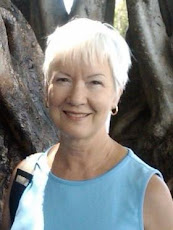

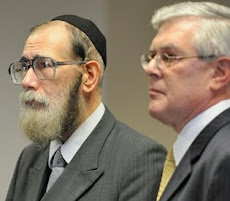

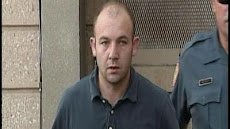









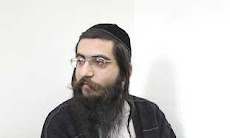





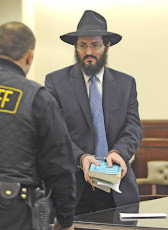














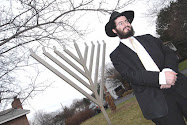




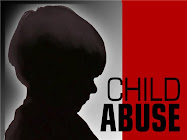



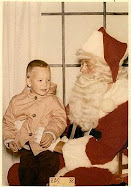









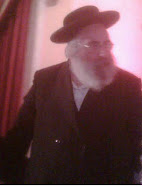



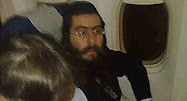




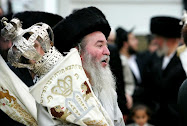


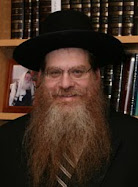












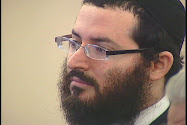
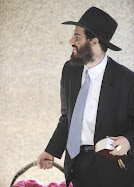
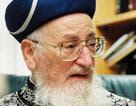









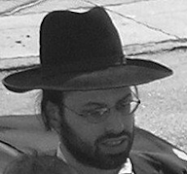

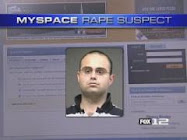









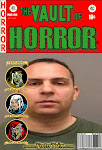







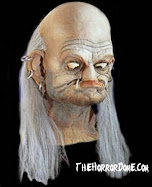
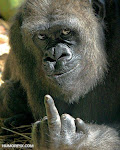



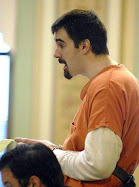


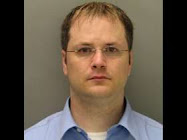


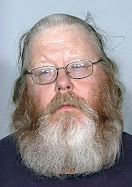

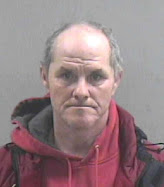
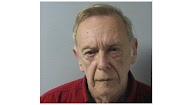
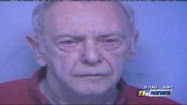













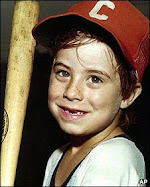

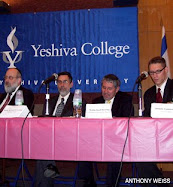
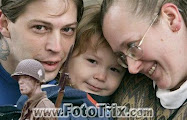




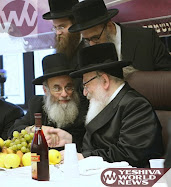
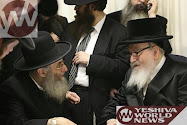
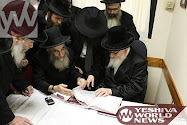






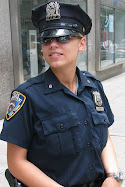


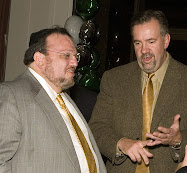
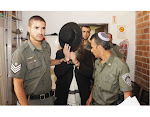


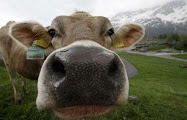
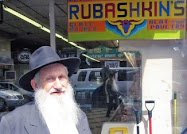















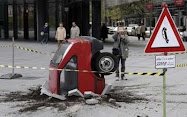
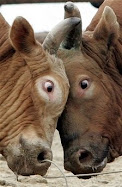
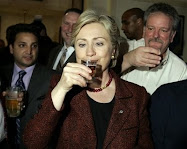








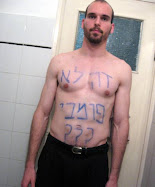
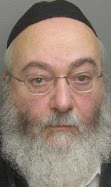

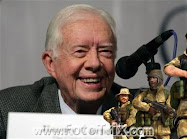










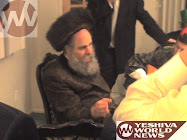






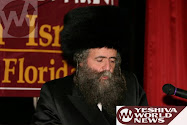


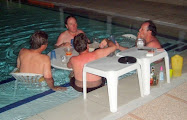

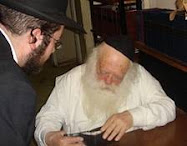

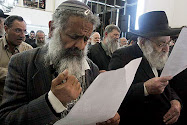
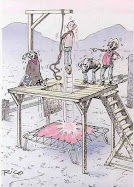
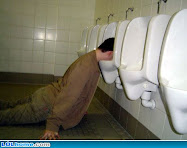



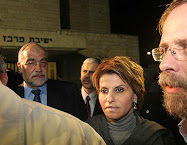
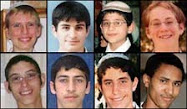
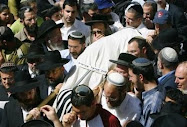
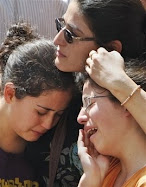
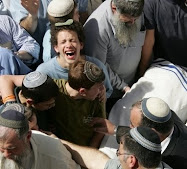
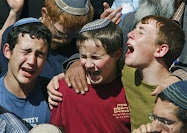
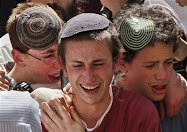
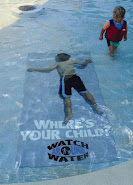

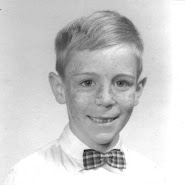







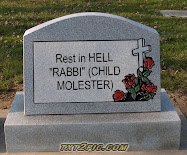
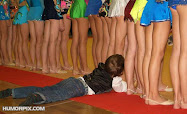







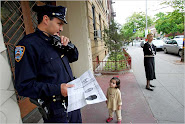















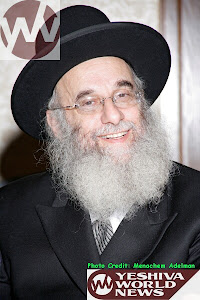
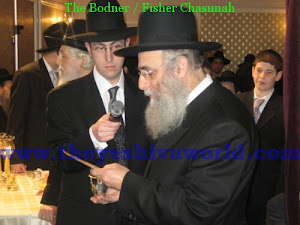
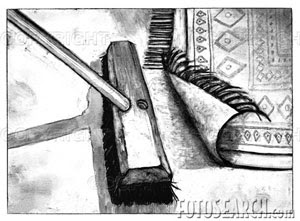
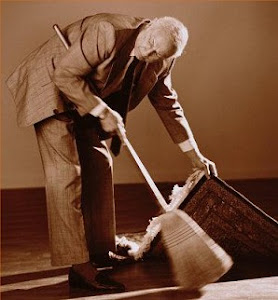








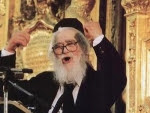
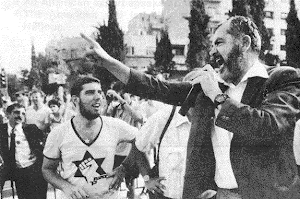
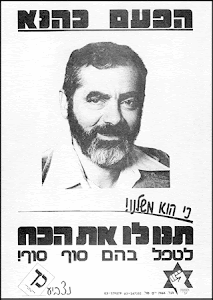
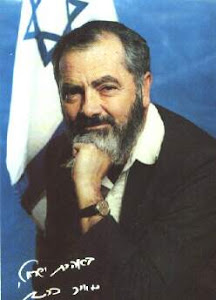
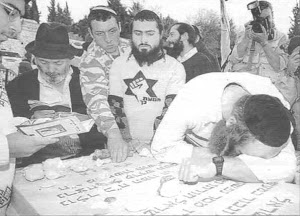
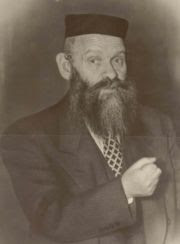




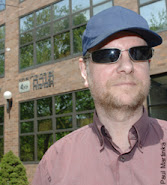


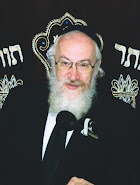





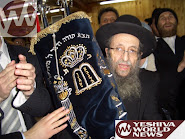

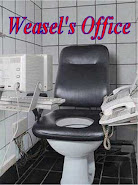

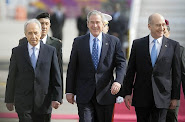
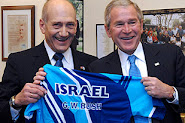
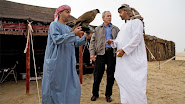


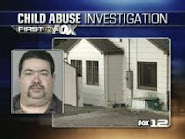
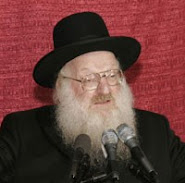

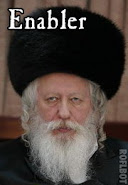


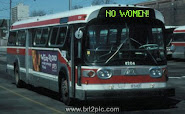










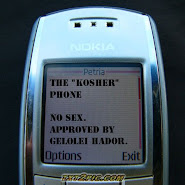





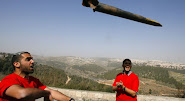
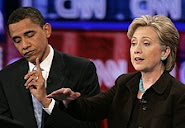


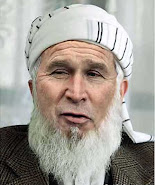









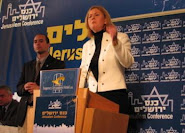


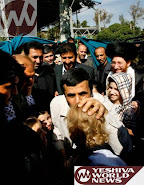
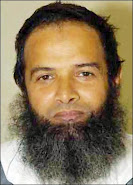


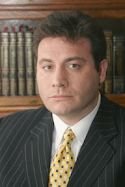


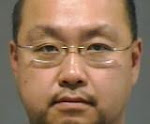
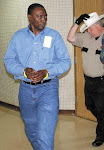

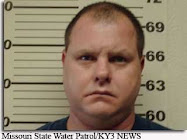



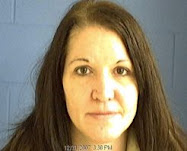
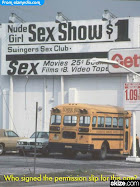

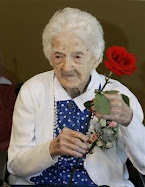
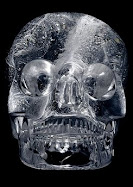
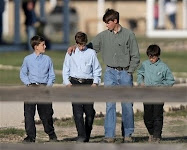



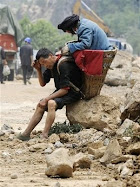



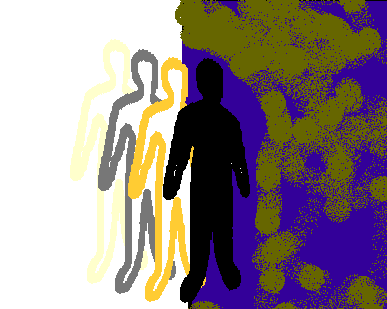

7 comments:
As a concerned parent I ask; Why our our gedolim failing us? And why are they holding the torah hostage against us?
let us investgate why do our gedlim choose to live in a zone of denial and curruption?
If you are a true gadol, why have you not stepped forward? why have you still not made your voice be heard against the terrible sex child abuse committed by the child molesting rabbi's epidemic?
If you are indeed a gadol, why have your lips been sealed all this time regarding the terrible physical and mental abuse that hundreds of students go through on a daily basis in chasideshe yeshivas and also in litvishe yeshivas?
If you are a parent that is sending your child to YTT, than you are truly placing your soul in the satan's hands, and whatever harm comes to your child will be your own doings.
Is Nussbaum still teaching at YOB?
I inquired and was told that Nussbaum is still doing private tutoring at YOB. He is not on the official YOB payroll.
PRIVATE TUTORING? He's more dangerous than ever!!! If the victims don't go to the police or sue the guy, there is no telling how many more victims there will be. Stop threatening and start taking real action against this guy!
To Anons,
Your concern for the safety of our children is greatly warranted. I assure you that I am doing all I can regarding the latest Nussbaum fiasco. Stay Tuned!
Anonymous Writes:
What happened at the Lanner parole hearing, did his buddies from the RCBC (Rabbinical Council of Bergen County) come to testufy that they need him out to run NCSY Chanukah parties? Or did he have to beg his ex-wife to send him soggy latkes by UPS again? I don't know if he got permission to light with olive oil while in jail... maybe he had to have candles...
But I hope you will warn us if he moves into a Jewish community, its about time the bloggers did more than just vent!
Case of Rabbi Baruch Lanner
National Conference of Synagogue Youth (NCSY)
Convicted sex offender and is currently in prison
The Awareness Center would like to thank Rabbi Yosef Blau (Yeshiva University) for speaking out and Gary Rosenblatt (editor and publisher of the New York Jewish Week) for researching and printing the original story about Baruch Lanner. Both individuals are heros for NOT keeping the silence.
If you are a survivor of Baruch Lanner, or interested in more details about this case, contact Murray L. Sragow.
Murray has an e-mail group that is for people interested in the reform of OU/NCSY in the wake of the Lanner scandal. Individuals involved are victims/survivors, parents, rabbis, and lay community leaders.
murray.sragow@verizon.net
For more on the lanner case, copy and paste link below at The Awarness Center
http://theawarenesscenter.org/lanner_baruch.html
Post a Comment